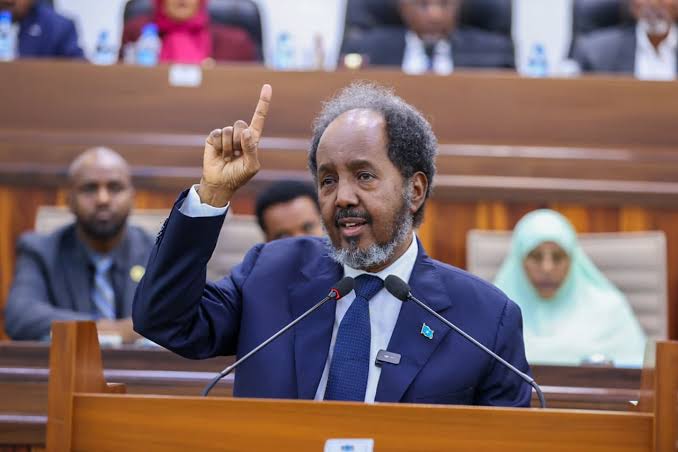
Faith Nyasuguta
Somali President Hassan Sheikh Mohamud has officially nullified the memorandum of understanding signed between the Government of Ethiopia and Somaliland. This symbolic move follows an announced deal on January 1st, where Somaliland plans to lease a 20-km stretch of its coastline to Ethiopia for a naval base.
Ethiopian Prime Minister Abiy Ahmed revealed this plan during the signing. Somaliland President Muse Bihi Abdi claimed the agreement included Ethiopia’s future recognition of Somaliland as an independent country, leading to a dispute.
The core issue lies in Somaliland’s historical challenge to the binding nature of the union formed after gaining independence from Britain, contesting its status as part of a unified Somalia.
In response, Somalia labeled the move an “act of aggression” and recalled its ambassador from Ethiopia. The African Union chairperson Moussa Faki Mahamat called for immediate negotiations between Ethiopia and Somalia to resolve their differences.
He issued a statement on Thursday urging both Ethiopia and Somalia to exercise “calm and mutual respect” to de-escalate the brewing tensions.
Mahamat emphasized the need for prompt negotiations to address their differences and cautioned against actions that could inadvertently strain the good relations between the neighboring Eastern African nations. Faki underscored the imperative to uphold the unity, territorial integrity, and full sovereignty of all AU member states.
The United States, aligning with the AU’s appeal, has rejected international recognition for Somaliland and is calling for diplomatic dialogue to resolve the crisis.

Somaliland, which declared independence from Somalia in 1991, is not internationally recognized, and its bid for autonomy has faced staunch opposition from Mogadishu.
Ethiopia, having lost access to the sea since Eritrea’s secession in 1993, seeks strategic alternatives. While Ethiopia relies on Djibouti’s port for most imports and exports, the recent agreement with Somaliland adds complexity to regional dynamics.
RELATED:




